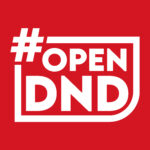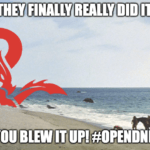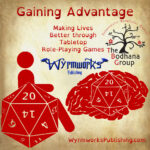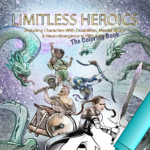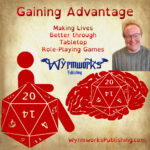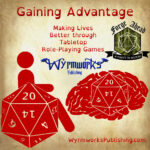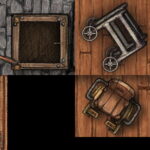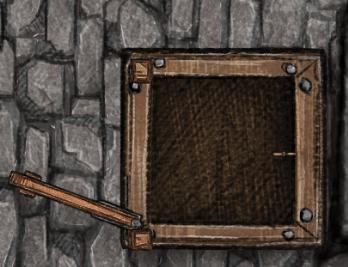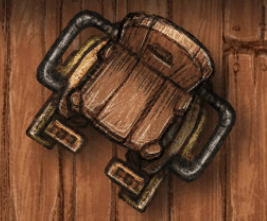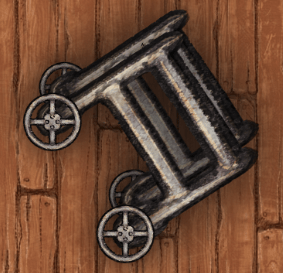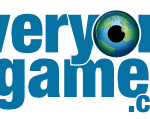You have heard, “Everyone’s entitled to their opinion.” I disagree, at least if you’re going to be making decisions with it that affect others. I contend that, “Everyone’s entitled to an informed opinion.” So having read the proposed OGL 1.2v1 I offer my answers to the questions in the OGL 1.2 Survey with suggested reading so you can express your own informed opinions. I hope this will also help others understand why the entire community is upset about these changes. Special thanks to Justin Alexander for posting these (with his informed responses) and to all those who offered their informed opinions to help inform mine.
Note that the responses are necessarily plain text in the form, but I’ve added formatting for reference and readability here.
2. Now that you’ve read the proposed OGL 1.2, what concerns or questions come to mind for you?
I feel betrayed. From January 2004 to the end of 2021, 18 years, you had these words on your website <https://web.archive.org/web/20060106175610/http://www.wizards.com:80/default.asp?x=d20/oglfaq/20040123f>.
7. Can’t Wizards of the Coast change the License in a way that I wouldn’t like?
Yes, it could. However, the License already defines what will happen to content that has been previously distributed using an earlier version, in Section 9. As a result, even if Wizards made a change you disagreed with, you could continue to use an earlier, acceptable version at your option. In other words, there’s no reason for Wizards to ever make a change that the community of people using the Open Gaming License would object to, because the community would just ignore the change anyway.
Ever since you removed those words, your communication with your passionate loyal customers has been a string of lies. Since you sent NDAs to some of the small companies that you portrayed as “big corporations” (most less than 10 employees!), literally every public communication has intentionally contained multiple deceptions, and this document and its associated FAQ are no exception.
My concern is that I can’t do business, nor can I in good conscience give my verbal or financial support, to a company that lies to its fans and, when called out for it, doubles down on the lies. I have been a hardcore fan and Dungeon Master since 1982. I fought against the Satanic Panic at age 10 and have extolled the game’s virtues and fun for forty years.
Just a few weeks before this became public, I encouraged my 2500 loyal customers to buy OneD&D when it launched, and we would support it with revised and optimized content. Now, I have to tell them that if they want to use our unique disability-representative and accessible content, they’ll have to follow us to another system like Black Flag and stop buying WotC materials. I don’t want to do that.
3. After reading the proposed OGL 1.2, how has your perception of the future of Dungeons & Dragons changed compared to before reading OGL 1.2?
Much Worse
4. What would be needed to improve your perception of Dungeons & Dragons’ future?
Stop the empty apologies. This is still a critical failure. Every third party publisher encourages their fan base to buy your content, fights against piracy of your materials, and fills niche gaps that you can’t. Look at the comments and replies on all your social media channels over the past month. 99% of the comments are negative, pointing out that you’re not fooling anyone.
And these are your fans, the people who chose to follow your channels! That’s not just the publishers that you’ve alienated!
I work with a lot of teens, including my own children (all D&D fans until now), and I always tell them, “When you’ve dug yourself into a hole, the first thing you need to do is put down the shovel.” Until Hasbro puts down the shovel, the hole will only get deeper, and now that the financial trades have started reporting it, everything looks bleak for WotC.
That said, you need to understand that D&D ≠ WotC. D&D isn’t about the ampersand. It’s about the community. And you can’t take our community away. We—the fans, not just the 3PP—will find another home, and we will migrate together, and we will support OGL 1.0a developers by buying their old products. We would like WotC to be part of our community, but that requires mutual respect and trust. You’ve repeatedly broken our trust, so now you need to do something Herculean to redirect that torrent. Replace 1.0a with 1.0b that adds “irrevocable” without an Orwellian redefinition, and only then will you be able to begin to claw your way out of the pit you’ve trapped yourself in. We’ll even help you, as we are right now, collectively putting hundreds of thousands of hours into these surveys and other feedback channels to offer you our ropes out of the pit, but we’re all hanging onto the same rope, since we fully expect you to pull us down with you, but together, we’re stronger than you.
5. How would you rate your level of understanding and your level of satisfaction with the Creative Commons Attribution 4.0 International?
Understanding: 5; Satisfaction: 2
6. How would you rate your level of understanding and your level of satisfaction with the content found in the SRD that will be released under Creative Commons?
Understanding: 4; Satisfaction: 2
7. Do you have any other comments about the Creative Commons Attribution 4.0 International and/or the content that will be released under Creative Commons?
I heard about the Creative Commons license before I even got to read the post. As a longtime fan of the Open Source movement, I was shocked and thrilled.
And then I saw what it actually included.
Those sections are nearly useless as shared content. It describes combat but doesn’t tell me definitely whether I can say, “Dagger. Melee or Ranged Weapon Attack: +7 to hit, reach 5 ft. or range 20/60 ft., one target. Hit: 5 (1d4 + 3) piercing damage.”
90% of what’s listed there is uncopyrightable, so by making it Creative Commons, you actually took away rights by requiring attribution for something that’s nearly all public domain. Another deception to fool your investors. We’re not fooled. Put down the shovel.
This would be useful if you also included lists of names of monsters, classes, and spells that we can safely use unless you actually plan to sue someone for saying, “The Wizard can cast Magic Missile,” without including the stat blocks. Tell us what feature descriptions we can use for homebrew monsters like the standard breath weapon syntax.
And then there’s the legal confusion whether those sections are Creative Commons or OGL. You can’t assign 2 different licenses to the same content, so which is it? Is this some other kind of trap? If we use this Creative Commons content, because the OGL declares it to be Creative Commons, are we thus submitting to the new OGL? If the OGL, which declares this content to be Creative Commons, is terminated, does that also deauthorize the Creative Commons license? You’ll have to forgive the questions, given the context of your behavior in recent months.
This raises more questions than it answers, and nobody knows whether we gain anything from this besides being able to say, “hit points,” and, “Armor Class,” and maybe do skill checks, so can we use that and related standard 5e phrases under Creative Commons? Give us an SRD of what is CC, how we can use the content on those pages, including a list of representative examples in terms of phrase and term usage.
And most importantly, this gives us nothing more than we already had with 1.0a, like a trip to the Wonderful Wizard of Ogl, where he gives gifts to the quartet that simply tell them what they already have and says, “Oh, no, my dear; I’m really a very good man, but I’m a very bad Wizard, I must admit.” (That text is public domain. We know we can use it. See the value of clear licensing?)
8. How would you rate your level of understanding and your level of satisfaction with the Notice of Deauthorization?
Understanding: 5; Satisfaction: 1
9. Do you have any other comments about the Notice of Deauthorization?
You made a promise for 18 years. 18 years! And then you claimed you could just deauthorize it without terms in the contract to determine how or under what terms you could do so.
This is straight-up bullying, because you know this is dishonest, and the only way you might get away with it is by pushing us around. But you have to understand that many of us, especially those of us who have supported you for 40 years, spent a lot of our formative years being bullied, often because we liked playing D&D! And now D&D is bullying us! But we’re not little kids anymore. We’ve spent more decades than the OGL strategizing, coming up with creative solutions against impossible odds, sticking together, standing up for each other, and not giving up.
I wrote a book of disability mechanics under 1.0a and made those mechanics OGC to allow other publishers to easily add disability representation to their content. Now neither I nor they can use those mechanics unless we both submit to your revision, a setback to disability rights.
This raises so many other questions. For those not following industry news or your social media channels but producing content via OGL 1.0a around the world, how can they agree to a license they’ve never heard of? You can solve this with a new SRD 5.2 with updated content, offering something new, but leaving those who are willing to accept the limitations of SRD 5.1, giving your fans a choice instead of forcing thousands of people to walk away from D&D forever. We love D&D. We’re growing the hobby as we have for decades. Work with us instead of against us.
Be the heroes. Put down the shovel, and pick up the sword. Be the brave swashbuckler who makes the hard call for the benefit of all. If you don’t, we will. You’ve seen how we’ve banded together. A month ago, we were arguing like siblings over which edition is best, or D&D vs Pathfinder, but you’ve united the entire global community by giving us a common enemy — Hasbro. You rolled initiative first, not us. And we will keep fighting for what’s right, but we don’t want you as enemies. We want you as allies, even if less than trustworthy allies. Right now, you’re still the BBEG. (Since I notice Hasbro executives clearly don’t know D&D from what we’ve seen the past few weeks, that’s, “Big Bad Evil Guy,” the villain at the final showdown.) When your children and grandchildren talk about you, let it be with pride — “They fought for freedom and stood up against lies!” It’s not too late for each person at Hasbro reading this to do the right thing.
10. How would you rate your level of understanding and your level of satisfaction with the types of content covered by the proposed OGL 1.2?
Understanding: 4; Satisfaction: 1
11. How would you rate your level of understanding and your level of satisfaction with the content ownership rights outlined in the proposed OGL 1.2?
Understanding: 5; Satisfaction: 1
12. Do you have any other comments about the types of content covered and/or the content ownership rights outlined by the proposed OGL 1.2?
Content Types
As an advocate for disability rights, specifically within the TTRPG space, this is completely unacceptable. I have been working with publishers big and small in the past year to improve accessibility throughout the entire industry, and you’re trying to stop that, or you at least don’t want third party D&D content to be accessible. While an audiobook version may arguably be a static file, since the only examples you’ve given are print, PDF, and ePub, and you said other formats cannot be under this license, you are forbidding disability access. I’m committed to making audio versions of our books, but under this, I can’t unless I make them Fan Content, which would contradict this license and be financially unfeasible. So much for all the talk about inclusion and preventing discrimination, yet another lie. Many publishers have wikis, which make their content easier to navigate and more accessible to people with a wide variety of disabilities. People use browser plug-ins to meet a wide range of accessibility needs, and you just forbade us from producing content in formats like dynamic HTML to offer maximum accessibility.
But it’s not just a matter of adding a few extra file formats. It’s any number of possibilities, most of which don’t exist yet. That’s why I want to make them. I want to make an audio mouseover plugin for Foundry VTT that tells you what you’re pointing at and can even work like a geiger counter to find the closest token. That’s just one idea. For ADHD, I have trouble picking out specific items on a screen of too many things. Some kind of animation with a search function would be helpful, and spell effects help everyone see who’s doing what. Someone with short term memory loss might benefit from those frequent animations. That’s VTT.
And then there’s apps, like imagine a wiki-like app that’s all voice controlled and has audio capabilities. Could be done as a web app, but would be nice as a standalone mobile app, too. Encounter builders that allow you to adjust color, font size, background, etc. for different sensory needs. “It’s your turn” flashy animation could be helpful for multiple attention & sensory needs. And you forbade interactive character sheets, which are helpful for those with learning and sensory differences. And why do you hate random generators? Those are mostly just harmless fun but can help those with executive dysfunction. The number and variety of assistive technology are infinite and will change as other technology or ideas come available. We need to have those options available and not forbid creative problem solving.
Don’t claim that this is all about preventing discrimination. That’s just hypocrisy when the license itself is inherently discriminatory. Another lie. But if you insist on that path, you’d better check every line of those 4 corners with an ADA lawyer. I already am.
Content Ownership Rights
You included “Irrevocable” but then immediately redefined it. To quote Inigo Montoya, “You keep using that word. I don’t think it means what you think it means.”
irrevocable (meaning that content licensed under this license can never be withdrawn from the license).
This doesn’t prevent the license itself from being revoked, and if the license is revoked, then that inherently revokes our license to use it. Even if our existing content couldn’t be revoked, which this doesn’t guarantee, I can’t sign contracts with creators for projects that could suddenly become impossible to complete due to license termination. The wording in 1.0a was clearer than this, and we all know how you handled that. This is a bad faith redefinition.
13. How would you rate your level of understanding and your level of satisfaction with the “You Control Your Content” section?
Understanding: 5; Satisfaction: 1
14. How would you rate your level of understanding and your level of satisfaction with the “Warranties And Disclaimers” section?
Understanding: 5; Satisfaction: 1
15. How would you rate your level of understanding and your level of satisfaction with the “Modification Or Termination” section?
Understanding: 5; Satisfaction: 1
16. Do you have any other comments about the “You Control Your Content”, “Warranties And Disclaimers”, or “Modification Or Termination” sections?
You Control Your Content
You claim we own our content, but you can at any time terminate this license for some or all of us, thus removing permission to publish it. If you control its distribution, then we don’t truly own it. Another lie.
Warranties And Disclaimers
(e) No Illegal Conduct. You will not violate the law in any way relating to this license or Your Licensed Works.
Which law? I’ve published content showing women’s knees, which is illegal in some countries. I’ve published content depicting LGBTQ+ characters, which is illegal in some countries. This would also prevent using it for political speech in some contexts.
No Hateful Content or Conduct. You will not include content in Your Licensed Works that is harmful, discriminatory, illegal, obscene, or harassing, or engage in conduct that is harmful, discriminatory, illegal, obscene, or harassing. We have the sole right to decide what conduct or content is hateful, and you covenant that you will not contest any such determination via any suit or other legal action.
You reserve the right to define this without any ability to contest it? I have friends whose content has been pulled from the DMs Guild for showing “male nipples.” This license itself discriminates against disabled, neurodivergent, and mentally ill people. You still sell Oriental Adventures and very recently published hateful content in Spelljammer. We clearly cannot trust you to be sole arbiters to define what is and isn’t hateful. If you want to include this, you need to find an independent third party organization or work with the TTRPG community to establish and independent organization to make these decisions using a process that will not put the financial burden of defense on us. Some examples include We Are Many-United Against Hate, Southern Poverty Law Center, The Leadership Conference Education Fund, and the Lawyers’ Committee for Civil Rights Under Law.
OGL 1.0a has been available for 18 years, and in that time, the most problematic content has come from WotC, not 3PP. When hateful content surfaces, the community has self-policed the content more effectively than this policy would be. This is a solution to a non-existent problem, an excuse to rescind the rights promised in 1.0a.
Modification Or Termination
Because this license includes several termination options, the modification rules are meaningless, since you could at any time terminate the license and replace it with a new one, as is the case with this one.
And because you can use 7(b)(i) at any time without recourse to terminate anyone’s license immediately, given the problems with 6(f), and without an independent third party to determine intellectual property infringement, these termination conditions are unacceptable.
And these words, “Creators using OGL 1.2 waive all right to participate in class, collective, or joint action,” fundamentally misunderstand what the D&D community is all about. We don’t split the party.
17. How would you rate your level of understanding and your level of satisfaction with the Virtual Tabletop Policy?
Understanding: 5; Satisfaction: 1
18. Do you have any other comments about the Virtual Tabletop Policy?
First, in case this content is broken up in your system, my comment from #12:
It’s any number of possibilities, most of which don’t exist yet. That’s why I want to make them. I want to make an audio mouseover plugin for Foundry VTT that tells you what you’re pointing at and can even work like a geiger counter to find the closest token. That’s just one idea. For ADHD, I have trouble picking out specific items on a screen of too many things. Some kind of animation with a search function would be helpful, and spell effects help everyone see who’s doing what. Someone with short term memory loss might benefit from those frequent animations.
This policy, which you claim is about preventing hate and discrimination, is a hateful discriminating policy. You believe you can tell people, including disabled people, how to play D&D and what tools we need to do it, but you don’t know everyone’s abilities, experiences, and needs. VTTs have allowed many people with social anxiety to play D&D on their own terms, and you’re restricting their experience, punishing them for their mental illness. I understand that you want to eliminate competition for your upcoming VTT, but by trying to do everything yourselves, you place an impossible burden on your developers, and everyone loses. In D&D, you’re supposed to be able to play anything you want any way you want, but for the first time in its history, you’re dialing that back and placing restrictions on creative expression. That will not endear you to your fans, and “forbids assistive technology for disabled people” isn’t a good look in the headlines.
And then there’s the lack of a license. This doesn’t just have a kill switch. It’s just a policy, which can be changed with a singe meeting, which you’ve shown you’re likely to do. I can’t afford to invest in assistive development for 5e VTT players with the threat that you could forbid it at any time with a company memo. The entire fanbase won’t play 5e anywhere online with that threat. We’ll move to a different system before you ever get your VTT up and running, and even those who come back will miss all the options they had before.
This also raises the question of whether pre-existing 1.0a content can be published as VTT content once 1.2 “deauthorizes” 1.0a. Since I noted elsewhere all the discriminatory elements of 1.2, my disabled customers are depending on me and others to convert our existing content to VTT for accessibility, but you’ve made that impossible, since accepting 1.2 for VTT conversion prevents creating audiobooks. We literally have to choose between allowed accessibility measures, depending which license we’re using.
And then of course, there’s the strange NFT reference you shoehorned into this policy. The entire 3PP industry hates NFTs. The one company (besides Hasbro!) that has attempted this is Gripnr, and the entire fanbase rejected them when announced.
This takes us back to your own words <https://web.archive.org/web/20211127200600/http://www.wizards.com/default.asp?x=d20/oglfaq/20040123f>:
Q: I want to distribute computer software using the OGL. Is that possible?
A: Yes, it’s certainly possible. The most significant thing that will impact your effort is that you have to give all the recipients the right to extract and use any Open Game Content you’ve included in your application, and you have to clearly identify what part of the software is Open Game Content.
One way is to design your application so that all the Open Game Content resides in files that are human-readable (that is, in a format that can be opened and understood by a reasonable person). Another is to have all the data used by the program viewable somehow while the program runs.
Distributing the source code not an acceptable method of compliance. First off, most programming languages are not easy to understand if the user hasn’t studied the language. Second, the source code is a separate entity from the executable file. The user must have access to the actual Open Content used.
See the Software FAQ for more information.
Which reads <https://web.archive.org/web/20211122085557/http://www.wizards.com/default.asp?x=d20%2Foglfaq%2F20040123i>
Q: So what kinds of programs can I make with the OGL?
A: Anything. Character generators are popular, as are programs that help GMs keep track of their adventure. Random treasure generators are also fun.
Q: So I could make a game?
A: Sure. Remember though, you cannot use any Product Identity with the OGL or claim compatibility with anything. So you can’t say your game is a d20 System game or uses D&D rules or call it Elminster’s Undermountain Crawl.
You said in the FAQ for this policy:
For over 20 years, thousands of creators have helped grow the TTRPG community using a shared set of game mechanics that are the foundation for their unique worlds and other creations. We don’t want that to change, and we’ve heard loud and clear that neither do you.
You are clearly changing this and restricting it to everyone’s detriment. You are telling us how we can and can’t play D&D. We call this, “Gatekeeping.”
19. Have you used the OGL 1.0a or previous versions of the OGL to create third party content?
Yes
20. Do you want to create third party content for Dungeons & Dragons in the future?
Maybe
21. Would you be comfortable releasing TTRPG content under the proposed OGL 1.2 as written?
No
22. Why do you say that?
Until two weeks ago, I passionately wanted to create under the OGL, to improve representation and accessibility throughout the D&D ecosystem. But with these strongarm tactics, it’s getting harder to justify creating content that supports such a company. I wanted to change the industry for the better, but everything about this new OGL makes it worse. I can’t find a single improvement that this new license provides, and I refuse to discriminate against gamers by accepting the terms of this license.
If you want us to accept a new license, you need to give us a reason that doesn’t feel like extortion.
23. Compared to the OGL 1.0a, do you feel that you would be able to continue developing content the same way under the proposed OGL 1.2?
No
24. Why do you say that?
I’ve worked with a lot of people in abusive relationships. I have personal experience with them. The way this process has been handled has mirrored the hallmarks of abuse: refusing to take responsibility for your actions (It was just a draft!), gaslighting (We added “irrevocable”!), aggression (Threats toward the “Big 20” to sign with little time to decide), excessive monitoring (financial reporting, scrutinizing our content), attacking our intelligence (If you don’t like legal terminology, you can just accept it without reading!), mind games (“claiming you’re “giving” us public domain content as Creative Commons), isolation (“Creators using OGL 1.2 waive all right to participate in class, collective, or joint action.”), and promising to change and then doing it again (in the same sentence!).
Between this behavior, the built-in termination options, and the ableist discrimination inherent in this license I cannot in good conscience work under this license.
25. How would you rate your interest in using the Content Creator Badge as part of your third party works?
2
26. Do you have any other comments about Content Creator Badges?
A month ago, I would have given this a 4, proud to have the ampersand on my product (although this one looks amateurish), but now, to have the WotC brand on my product as some kind of endorsement of your company would be hypocritical and a contradiction of our company’s stated mission, “Helping you make lives better through TTRPGs.” Because this license only makes lives worse.
What other feedback do you have for us (related to the Open Games License or otherwise)?
I was so excited about the future of D&D. Together, we were making the world better, changing lives, and literally saving lives. I haven’t been to a movie since before COVID, but I was eager to go see Honor Among Thieves. I was looking forward to a shared media universe, and I was eager to use that media to introduce more people to the game and the domino effect that would cause. But until Hasbro leadership stops the lies and starts showing some vestige of respect for its fans, my only interactions with WotC products will be words of disappointment and cautionary tales to those who ask for my recommendation.
We just want to play D&D, make cool stuff for it, and be able to support the artists and wordsmiths who dedicate their time and talents to put beautiful wrapping paper on your products without fear of retribution for supporting you.
I truly hope you will rediscover humility and integrity and be the heroes that your media portrays. It’s not too late to put down the shovel.
